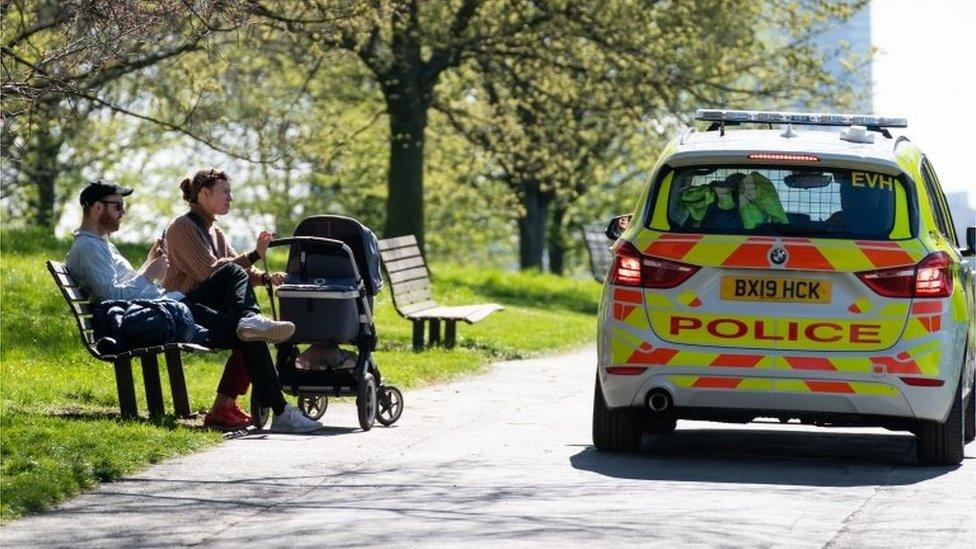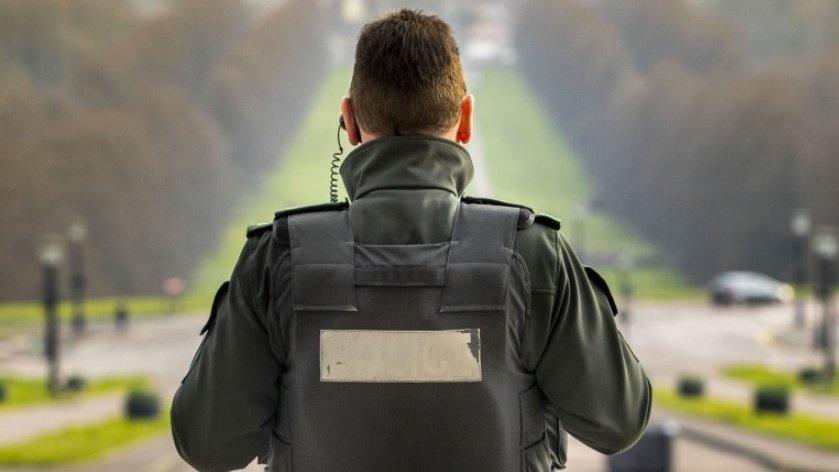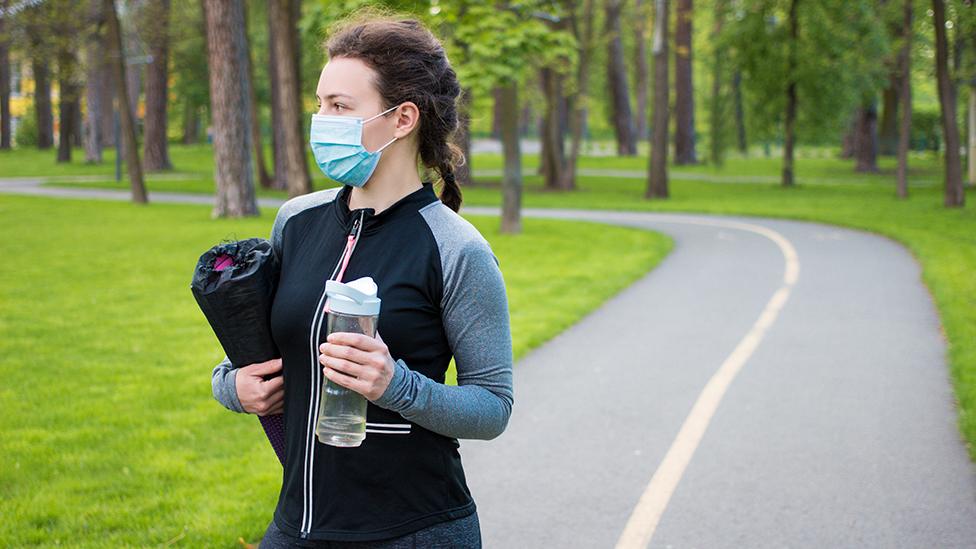Coronavirus lockdown: Police guidelines give 'reasonable excuses' to go out
- Published

Police have been told to stop people "home-working" in parks or sitting on a public bench for long periods of time.
Guidance to officers in England says neither activity is likely to be a "reasonable excuse" for someone to leave their home in the lockdown.
But the advice from police leaders and trainers says that people can move to a friend's address for a cooling-off period "following arguments at home".
It says such moves must be "genuine" and "measured in days, not hours".
The three-page document, entitled "what constitutes a reasonable excuse to leave the place where you live", is designed to help police enforce the emergency restrictions that came into effect three weeks ago and are set to be extended.
It has been produced by the National Police Chiefs' Council (NPCC) and the College of Policing, and appears to be drawn from guidelines issued by the Crown Prosecution Service.
But it has not been made public before - and suggests that some police have been applying the rules in the wrong way.
The regulations say householders can go outside if there's a "reasonable excuse", such as shopping for essential items, providing medical help and for exercise.
The guidance spells out what is "likely to be reasonable" for each of the key categories.
It says buying food for several days, including "luxury items and alcohol", is likely to be reasonable.
"There is no need for all of a person's shopping to be basic food supplies; the purchase of snacks and luxuries is still permitted," it says.
Last week, Northamptonshire Police Chief Constable Nick Adderley backtracked after threatening that his officers would start to look in people's shopping trolleys and baskets if they continued to flout the rules.
It also says people are not allowed to buy paint and brushes "simply to redecorate a kitchen" but can purchase tools and supplies to repair a fence "damaged in recent bad weather".
Exercise guidelines
On exercise, the guidance lists driving to the countryside for a walk as "reasonable" if "far more time" is spent walking than driving.
But it adds that driving for a "prolonged period with only brief exercise" is not reasonable.
That would appear to indicate that someone who drove for an hour to a beauty spot for a walk would not be contravening the rules.

A SIMPLE GUIDE: How do I protect myself?
AVOIDING CONTACT: The rules on self-isolation and exercise
HOPE AND LOSS: Your coronavirus stories

Under the guidance, police are advised not to intervene if people stop to rest or eat lunch while on a long walk, but short walks to sit on a park bench are not allowed.
"A very short period of 'exercise' to excuse a long period of inactivity may mean that the person is not engaged in 'exercise' but in fact something else," the guidance says.
The document also clarifies that anyone can travel to work if it is not "reasonably possible" to work from home. However, it says it is not allowed for home-workers to "choose" to work in a park.
The College of Policing said the information was published for forces before the Easter Bank Holiday weekend.
"It was designed to help officers remain consistent with criminal justice colleagues," a spokesman added.
- Published16 April 2020

- Published12 January 2021

- Published29 March 2020
